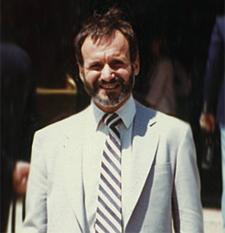What Paul Richard alleges as over a decade of discrimination and abuse has boiled down to 19 witnesses and a claim of time-related prejudice.
As Xtra previously reported, Richard filed a complaint with the Canadian Human Rights Commission in 2005. He alleges discrimination based on sexual orientation by his former employer, the Treasury Board of Canada.
Richard, the Canadian government, the CHRC and the Attorney General are entangled in legal proceedings over whether Richard’s allegations of systemic homophobia — which was filed two decades after the events in question — should still be heard in court.
On April 22, the Federal Court determined that the time lapse between the events and the filing of the complaint was so great that it placed a substantial prejudice on the part of the federal government and its ability to gather evidence. Four days later, Richard filed yet another appeal, this time for his case to be heard by the Federal Court of Appeal.
“They recognize I was abused; we already know I’ve been discriminated against,” Richard says of the CHRC. The present debate is not whether Richard suffered abuse as an openly gay man, but whether the case should be dealt with at all.
Currently, human rights complaints must be filed with the CHRC within a year of the events occurring. However, Richard claims he suffered profound mental health issues that prevented him from filing his complaint any sooner than 2005. Richard claims the CHRC and the Attorney General’s office are solely hinging their case on the time issue, and he cites the case of Gauthier v Lac Brôme as having set a precedent over time barring in the face of allegations of abuse. In the court decision in that particular case the judge remarked, “the trial judge erred in law in drawing a distinction between the appellant’s lack of courage to initiate legal proceedings and absolute impossibility in fact to act.”
In his initial complaint documents, Richard named 19 witnesses — former managers and co-workers responsible for the alleged abuse, for the most part — who could speak to the matter of systemic discrimination at the time of Richard’s employment with the federal government. However, the Attorney General insists it has been unable to locate these former federal employees.
“The government has all kinds of resources to track people,” Richard says — among them, the database of retired and pensioned employees, and if need be, social insurance numbers and income tax records. He believes the Attorney General is making very little effort to actually locate these witnesses, and hopes that the next court to hear his case compels them to perform a genuine search. “The burden of proof is on the government, not on the victim,” Richard says.
Richard says that whether he wins or loses the next appeal — and whether the errors cited in his appeal are properly dealt with — it will likely go to the Supreme Court of Canada, forced either by his hand or by the Attorney General’s.


 Why you can trust Xtra
Why you can trust Xtra


